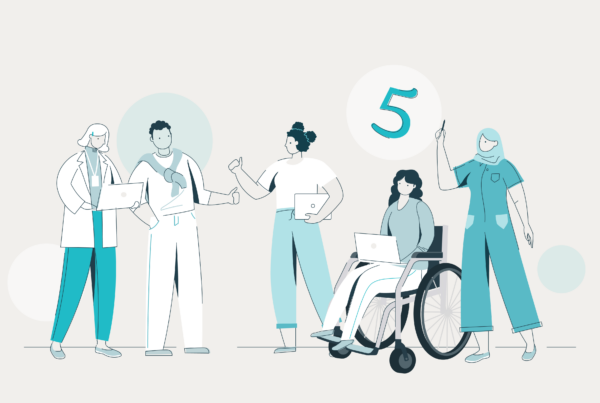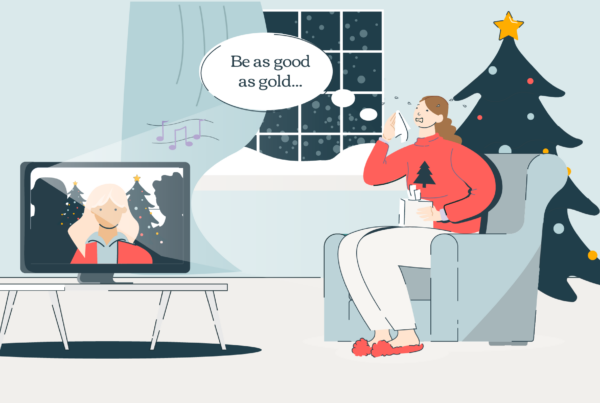Welcome to the first in a series of blogs where we expand on some areas of our recent Learning Live session. There, we covered the transformative effects behavioural science can have on organisational learning culture. Here, we dig a little deeper.
First up: Narrative and Storytelling.
Narratives can make your learning programmes more memorable, more effective and more human. But how? And why? Well, are you sitting comfortably? Then we’ll begin.
1. Stories are sticky
While stories can be fun, they’re also functional – a kind of learning adhesive, if you will. It’s been reported that facts wrapped up in stories are up to 22 times more memorable than facts alone. Research stretching back decades shows that building a story around a humble list of items increases recall by up to seven times. And one university study by Made to Stick authors Chip and Dan Heath, had students listen to presentations containing either facts and figures, or stories. Ten minutes after the talks, just 5% of students could recall a statistic. But presentations containing stories? A that’s-more-like-it 63% were able to remember details.
2. Stories stir emotions
Ever wondered why storytelling is not only a filmmaker’s, but also a politician’s – and, indeed, a brand’s – best friend? One reason is that when you’re invested in a story, your brain releases oxytocin. This outrageously interesting molecule does lots of good things, including helping us bond and care. It gets us invested. And the greater the level of investment, the more likely we are to absorb information and remember it later. Excellent news for learners.
As an added neurochemical bonus, oxytocin infusion can lead to prosocial behaviours – “Like turning on a garden hose and watching the water spray out,” is how neuroscientist Paul J. Zac so vividly puts it. Meaning stories not only help us learn better, after hearing them we’ll be more inclined to help others learn, too.
3. Stories give your brain a workout
You have around 86 billion neurons in your brain – each one as busy and alive as a metropolis – with signals zipping between them at 120 metres per second. When we hear facts, language comprehension and processing centres of the brain crank up.
But an engaging story can see brain activity increase fivefold. The cranial street lamps switch on, grey matter is illuminated, our motor cortex gets engaged, emotional reactions whirr away and imaginational sensations come alive. And with all that heavy lifting going on, you’re much more likely to remember more.
4. Stories are in your DNA
Your Stone Age ancestors spent a lot of time sitting around campfires and in caves, telling tales. Indeed, it’s believed that language evolved as a way of swapping ‘social information’. We’re so hardwired for stories, reckons social psychologist Professor Jonathan Haidt, that the brain is more a ‘story processor’ than a ‘logic processor.’
From Hamlet to Happy Gilmore, pretty much all stories can be boiled down to one thing: something changed. But we want to know what exactly changed? And why? And when and where and how? We’re almost supernaturally curious – between two and five years old, we’ll ask around 40,000 questions to those around us.
And we do so not to completely exasperate our caregivers, but to make sense of the world. Being told stories – even micro narratives like ‘This led to that’ – help. They glue us together. They strengthen culture. They are about as fundamental to us as breathing. As poet Muriel Rukeyser wrote, The world is made of stories, not atoms.
5. Stories make you smarter
“If you want your children to be intelligent, read them fairy tales. If you want them to be more intelligent, read them more fairy tales.”
Or so said Albert Einstein. And who are we to argue with him? So, here’s to hearing – and telling – more stories.
So, stories make magic happen. But who should be conjuring up such neurochemical marvels?
When it comes to stories about learning, leaders and CEOs are solid choices to deliver messages. As we said at Learning Live, we are influenced by the status and characteristics of a communicator.
But it might also be effective to hear from those who have been in a similar learning boat.
As Aristotle said, all drama is conflict. So perhaps messages should be less, ‘Learn this, you’ll benefit,’ and more, ‘Like you, I was struggling to make presentations, pitches and reports stick. Then I took a course on storytelling. Now I have to gently shut my colleagues’ jaws midway through my talks.’
A classic three-act structure with a hero at the centre. In short, a story.
Next up: Autonomy and Rewards.




